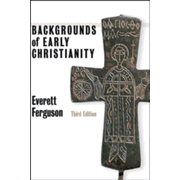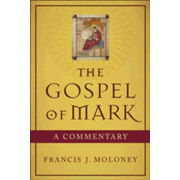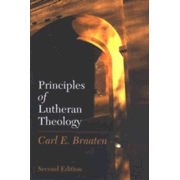OUR READING for the Fourth Sunday after Epiphany comes
to us from the Gospel According to Saint Mark. Within the selected text we find that
the gospel described the authority of Jesus…
And
they went into Capernaum; and immediately on the sabbath he (Jesus) entered the
synagogue and taught. And they were astonished at his teaching, for he taught
them as one who had authority, and not as the scribes.
And immediately there was in
their synagogue a man with an unclean spirit; and he cried out,
“What have you to do with us, Jesus of Nazareth? Have you come to destroy us? I
know who you are, the Holy One of God.”
But Jesus rebuked him, saying, “Be
silent, and come out of him!” And the unclean spirit,
convulsing him and crying with a loud voice, came out of him.
And they were all amazed, so that
they questioned among themselves, saying, “What is this? A new teaching! With
authority he commands even the unclean spirits, and they obey him.” And
at once his fame spread everywhere throughout all the surrounding region of Galilee. (Mark 1:21-28)
 |
Backgrounds of Early Christianity, Third Edition By Everett Ferguson |
Demons
Disturbed!
By the time of the mid-first century the church of Mark had collected sufficient witness to unfold the ministry of
Jesus. Therefore within this first chapter, we find the text we read carried
the early Church rapidly through scenes of his own baptism for our sake, the wilderness
challenge, and his calling of the first disciples. We now find him centering
his initial ministry in Capernaum, located on the northwestern shore of the Galilean Sea.
(see also Luke 4:31-37).
After
calling his disciples Jesus gathered with them in the synagogue. By the
context then, and the following episode at Peter’s home, we can assume that both
the disciples’ families and larger faith community were present in Sabbath worship.
In answer to customary and polite invitation, Jesus as being a guest rabbi was invited to teach in the synagogue (see also Luke 4:16-31). All present became astounded at what he told them. But his teaching did not sit
well with everyone.
In proper manner, Jesus at first did what every rabbinical teacher would do... he read scripture rightly and explained the reading using scripture. But then, he taught them with divine authority. In other words, he commented on what was read out of his own Spirit.
In proper manner, Jesus at first did what every rabbinical teacher would do... he read scripture rightly and explained the reading using scripture. But then, he taught them with divine authority. In other words, he commented on what was read out of his own Spirit.
Now this teaching obviously
disturbed many, but offended one person in particular. That one is noted
in our reading as having challenged Jesus, as our Lord being an outsider. That man was
thus described by the Markan writer as having a “demon”. He exhibited an unwelcoming and unclean, turbulent or
disturbed spirit (ἐν πνεύματι ἀκαθάρτῳ).
In other words, the man became greatly worked up by what Jesus said.
Hearing this account,
we can assume that by Jesus’ teaching with authority, the man discerned a
dangerous path for the synagogue. It seems the man feared that the synagogue and its people could be placed in peril.
Hence the loud challenger blurted, “What have you to do with us?” We wonder how many
synagogues of Mark’s day, or even churches within our own day... eventually say the
same as the scriptures are read and explained. Do we offer these same words as we are boldly challenged by the Word of
God?
 |
Gospel of Mark, The: A Commentary - eBook By Francis J. Moloney |
We hear that the man experiencing the turbulent
fear, therefore… must have to some degree recognized the authority of Jesus. Thus as
we consider this determination, I offer to you that with the recognition that Jesus is
indeed the Son of God… certain tumult surely wretched the man. Torn to the core of
his sinful being, and frightened by an unknown future... he is revealed as sinfully resistant to repent or change before the gaze of Almighty
God.. We now can ask therefore, "How many of us today have certainly been there?"
Subsequently, we understand that Jesus’ command for the demon to “Be still…” and to come out of him was not just made out of masterful hostility toward the demonic spirit, but was a calming, “Peace be with you!” instruction to the one afflicted. The effect of that command was such that the disturbed man then cried out. He shook uncontrollably. You see, throughout this gospel the author points us toward a pattern of forgiveness. A contrast developed. The disciples followed Jesus without seeing clearly the purpose throughout the gospel of Mark, but demonically-possessed persons who again and again saw rightly are described as crying out, "have mercy!"
Subsequently, we understand that Jesus’ command for the demon to “Be still…” and to come out of him was not just made out of masterful hostility toward the demonic spirit, but was a calming, “Peace be with you!” instruction to the one afflicted. The effect of that command was such that the disturbed man then cried out. He shook uncontrollably. You see, throughout this gospel the author points us toward a pattern of forgiveness. A contrast developed. The disciples followed Jesus without seeing clearly the purpose throughout the gospel of Mark, but demonically-possessed persons who again and again saw rightly are described as crying out, "have mercy!"
Lest we possess judgment, however, we can see these demon-possessed as ourselves. Does it not seem even today that those who are farthest from the Light, more
certainly know the depth of darkness and fear exposure? Realizing darkness, are they…
or we ourselves… not bid at once to be in the presence of our saving Lord so to be healed by him?
 |
Principles of Lutheran Theology Second Edition By Carl E. Braaten |
Bowed
Down
We might now ask, “What effect did receiving this
story have on the early churches of Mark?” Being written and read in the diaspora synagogues, wouldn’t this scene challenge doubters and spur those possessed
with unbelief. Couldn't we say that the text challenged those who were so heavily
invested in a certain theological and liturgical position that they would cry
out when disturbed? Indeed what would happen to any gathered Church community when
each revelation questions human traditions and comes to realize the Truth of what our Lord has
taught?
Take note! The answer was historically seen amongst those churches and nations that first heard the good news. This is recognized yet today in our various denominations, churches, and peoples who receive the Word of God. Receiving the Word of God proclaimed rightly disturbs, challenges, convicts, frees through forgiveness and empowers witness. But know this! Through our own proclamation of this Truth anchored in writings as such in Mark’s gospel, our Lord’s fame shall indeed spread far and wide. Thanks be to God.


This is a brilliant interpretation, thoughtfully considering the author of the Gospel of Mark's experience in the early Christian churches and God's agenda. I wonder if those in our congregations who react most negatively to needed changes implemented to become more missional, would find it comforting, on some level,to know Jesus is capable of removing this demon of disrespect for Jesus' authority and creating a new spirit in them/us? Your attitude of care as you deliver this message makes all the difference.
ReplyDelete